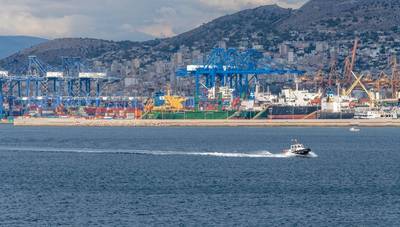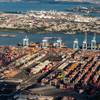Ships Docked as Striking Greek Workers Protest Over Rising Costs
Thousands of Greek striking workers, students and pensioners marched through central Athens on Wednesday to protest over wages which they are not enough to cope with rising living costs.
Ships remained docked at Greek ports and train services were halted as transport workers joined the nationwide strike by private sector union GSEE, Greece's largest.
City transport was also disrupted as bus and taxi drivers halted operations for a few hours.
Protesters marched to parliament around noon. Some of them held banners reading: "We don’t want breadcrumb increases, we want it all."
Since a 2010-18 debt crisis when wages were slashed as part of austerity measures in turn for bailout funds, Greece's economy has been growing at nearly twice the euro zone rate and the country last year regained investment grade status after 13 years in the "junk" category.
The monthly minimum gross wage was raised by 6.4% to 830 euros this month, the fourth such rise in five years. But many workers say the pay rises are not enough to keep up with high food prices and soaring rents and wages in Greece still lag behind those of their European colleagues.
For younger Greeks, hit by a high unemployment rate, the high cost of living is an additional challenge.
"Having such little prospects...and not being able to make ends meet is very hard," said 23-year old university student Elena Roza, one of the protesters. "The reflex reaction is to leave the country."
The Greek average monthly salary of 1,175 euros is 20% lower than 15 years ago, while unemployment remains above 10%, the second highest in the European Union behind Spain. Youth unemployment is over 20%.
The conservative government of Prime Minister Kyriakos Mitsotakis, which won re-election last June, has promised to raise the monthly minimum wage to 950 euros by 2027, when its term ends, and increase the average wage by more than 25% to 1,500 euros in the same period.
But GSEE says it wants an immediate increase to 908 euros and wants collective bargaining, which was abolished during the crisis, reinstated.
"The high cost of living is a noose around the neck of workers and pensioners. Growth should not only be for a few," said GSEE's Secretary for Public Relations Dimitris Karageorgopoulos.
(Reuters - Reporting by Renee Maltezou; Writing by Angeliki Koutantou; editing by Miral Fahmy, Christian Schmollinger and Angus MacSwan)













